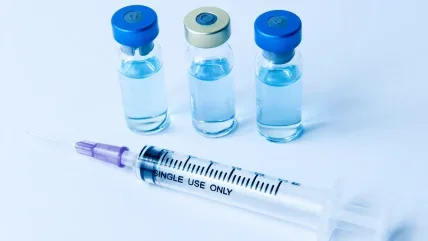
TNF Pharmaceuticals and Renova Health have announced the use of artificial intelligence (AI) and machine learning (ML) technologies to speed up drug development.
The collaboration aims to identify high-risk patients who could benefit from preserving lean muscle mass during GLP-1 treatment for diabetes, weight loss, and weight management.
Renova Health’s AI technology, comprising advanced natural language processing and large language models, enables TNF Pharma to analyse data from 30,000 patients.
It aligns with the US Food and Drug Administration’s (FDA) recent guidance on AI usage.
TNF Pharmaceuticals president and chief medical officer Mitchell Glass said: “Our collaboration partner, Renova Health has used its AI and machine learning technology platform to analyse and identify optimal patient pools and study sites, enabling a swift and efficient progression of our study series over the coming months.
“This technology has allowed us to look at the constellation of underlying conditions, symptoms, acute events, and medications being taken across thousands of patients to identify specific patient subsets for which isomyosamine treatment may be most beneficial.”
The partnership aims to optimise patient recruitment for the development of isomyosamine.
Isomyosamine, a plant alkaloid small molecule, modulates the immuno-metabolic system by regulating pro-inflammatory cytokines, including TNF-alpha.
TNF-alpha is a key inflammatory cytokine involved in the ageing process and several age-related diseases, and its role in disease pathogenesis was validated by numerous studies.
It will target patients with chronic diseases like diabetes, COPD, chronic kidney disease, or sarcopenia/frailty, and inflammation-related medical events, who are on GLP-1 drugs.
Renova Health CEO David Jacobs said: “We are thrilled to collaborate with TNF Pharmaceuticals to advance precision medicine through our cutting-edge NLP, LLM, and AI platform.
“Our technology transcends traditional big data analytics by creating highly specific patient personas, identifying optimal cohorts for isomyosamine based on underlying conditions, acute events, and medication profiles.
“Furthermore, our platform uncovers the nuanced impact of individual physician practices, such as varying diagnosis codes for GLP-1 prescriptions, like BMI versus diabetes, which can significantly influence cohort selection and study outcomes.
“This unparalleled precision enables TNF Pharmaceuticals to target patients who stand to benefit most, accelerating study timelines and enhancing therapeutic impact.”






